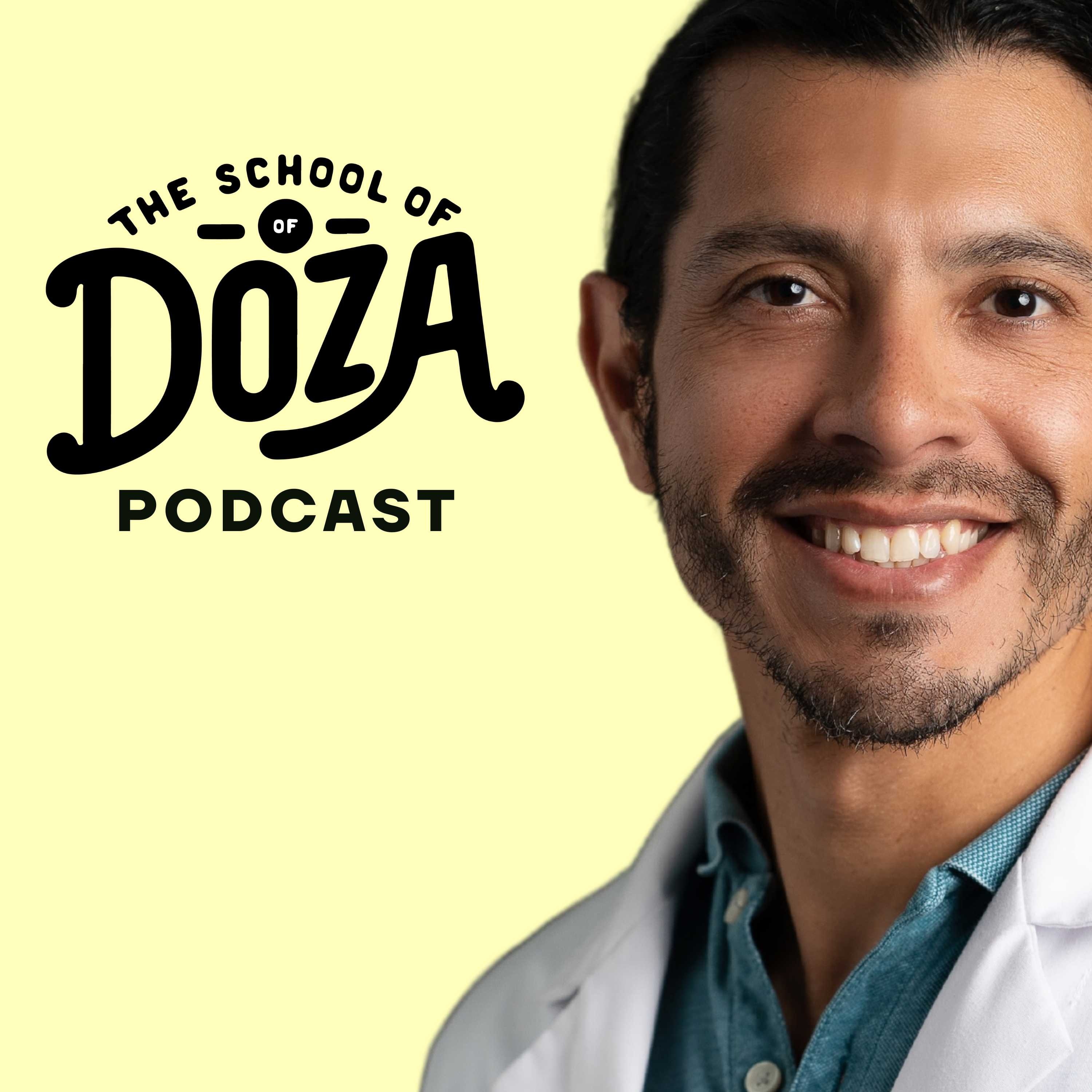
Nurse Doza’s Podcast comes to life in a very interactive way. Sure you can listen to the podcast, but this is just the beginning of your education in health. Every week, Nurse Doza dives into new health subjects and encourages you to submit your questions to be answered on the podcast, newsletter, YouTube, LinkedIn, and every other way that you like to take in educational media.
Episodes
Monday Sep 11, 2023
Reduce Bloating: 5 Tips for a Healthy Gut and Better Digestion
Monday Sep 11, 2023
Monday Sep 11, 2023
In this episode, Nurse Doza discusses the topic of bloating and provides tips on how to reduce it. Bloating is a common issue, with nearly 40% of the general population reporting experiencing it. Nurse Doza encourages listeners to take note of their own symptoms and do their own research to find strategies that work for them. This episode aims to empower listeners to take action and find relief from bloating.
00:00 START
02:29 Tips to reducing bloat.
07:40 Elimination diet and bloating.
10:38 Gut and brain interaction.
13:52 L-glutamine supplementation and gut health.
17:48 Support your liver.
21:10 Supporting the liver
23:41 Depression and Serotonin Production.
28:08 Digestive issues and processed foods.
30:39 Serotonin and mood support.
Elevate your mood naturally with Bliss. Our carefully formulated supplement is designed to support neurotransmitter production, ensuring a balanced and joyful life. Before diving into the episode, don’t forget to click the link and explore how Bliss can transform your everyday experiences.
https://www.mswnutrition.com/products/bliss/?ref=nursedoza
1. Diet and Bloating
-
Examine your diet to identify potential causes of bloat.
-
Low Fermentable Oligo-, Di- and Mono-saccharides And Polyols (FODMAP) Diet is highly recommended for treating IBS symptoms¹.
-
IBS diagnosis is based on the Rome IV criteria, highlighting the relation of abdominal pain with defecation and changes in bowel habits¹.
-
A significant percentage of IBS patients, especially women, associate their symptoms with food intake. Bloating and abdominal pain are the most frequent complaints¹.
-
Commonly reported dietary triggers include carbohydrates, fatty foods, coffee, alcohol, and hot spices¹.
-
Gluten can disrupt bowel barrier functions, especially in certain patients akin to celiac individuals¹.
-
Excessive fructose intake exacerbates NAFLD markers² and can disturb the intestinal barrier, intensifying liver inflammation and fructose conversion into fatty deposits³.
2. Gut Health and Bloating
-
Address gut health to alleviate bloating.
-
DGBIs encompass conditions like IBS, reflux hypersensitivity, and functional dyspepsia⁴.
-
Several factors, including past infections and psychological conditions, can lead to DGBIs⁴.
-
Disorders of gut–brain interaction or FGIDs are recognized as microbiota–gut–brain abnormalities prevalent worldwide⁵.
-
Gut microbiota is susceptible to changes due to varying factors like diet and psychological state⁵.
-
Methanogenic microbes in the colon can lead to slowed gut transit and constipation due to serotonin depletion⁵.
3. Bloodwork and Bloating
-
Seek bloodwork to identify underlying causes.
-
hs-CRP is linked with NAFLD⁶.
-
IBS has been found to predict higher hs-CRP levels⁷.
-
Elevated ALT is often observed in IBS patients⁸.
-
Excessive gas correlates significantly with liver steatosis and heightened ALT levels⁹.
4. Liver Health and Bloating
-
Support the liver for better digestion.
-
IBS symptoms like abdominal pain and bloating can also indicate NAFLD¹⁰.
-
Cholecystitis can lead to abdominal bloating¹¹.
-
The gallbladder isn't essential for a healthy life¹¹.
5. Mood, Serotonin, and Bloating
-
Maintain a balanced mood and serotonin levels to manage bloating.
-
Serotonin has diverse intestinal functions¹².
-
IBS might be associated with serotonin dysfunction affecting gut motility¹².
-
Changes in serotonin levels can be addressed with specific medications for symptom relief¹³.
-
Essential components for serotonin synthesis include tetrahydrobiopterin (BH4) and pyridoxine (vitamin B6)¹⁴.
As you've learned today, neurotransmitter balance plays a crucial role in our overall well-being. Why not support your body's natural balance with Bliss? Click on the link to discover how this transformative supplement can amplify your health journey.
https://www.mswnutrition.com/products/bliss/?ref=nursedoza
